Service
Special needs
Most prisoners with special needs face discrimination in the criminal justice system, on the basis of their birth, nationality, ethnicity, race, descent, sex, sexual orientation, gender identity, age, disability, and health condition.
Any person who is deprived of liberty as a consequence of conviction is vulnerable to a certain degree. Often the abuse of power is widespread in correctional settings, especially when it takes place in an environment that tends to be closed to public scrutiny,. Even where no abuse exists, prison conditions themselves in many jurisdictions are harmful to the physical and mental well-being of inmates. Therefore, there’s a range of international and regional instruments to ensure that the fundamental human rights of prisoners are protected.
There are certain groups that are in a particularly vulnerable position in prisons and who need additional care and protection, namely juveniles, the disabled and mentally ill, older prisoners, women, foreign nationals, minorities and those struggling with gender issues. The high proportion of prisoners with special needs means that this is a matter that definitely deserves special addressing by prison management policies.
Hence, we develop and implement an array of services aimed at streamlining the effectiveness and compliance of correctional systems as far as special needs are concerned, so that inmates with special needs are treated in accordance with the requirements of international human rights standards, while their prospects of social reintegration are enhanced.
- Juveniles
- Women & children
- Mentally ill
- Older inmates
- Disabled
- Gender issues
- Foreign nationals
- Minorities
Most prisoners with special needs face discrimination in the criminal justice system
The discrimination might be on the basis of their birth, nationality, ethnicity, race, descent, sex, sexual orientation, gender identity, age, disability, and health condition.
Any person who is deprived of liberty as a consequence of conviction is vulnerable to a certain degree. Often the abuse of power is widespread in correctional settings, especially when it takes place in an environment that tends to be closed to public scrutiny,. Even where no abuse exists, prison conditions themselves in many jurisdictions are harmful to the physical and mental well-being of inmates. Therefore, there’s a range of international and regional instruments to ensure that the fundamental human rights of prisoners are protected.
There are certain groups that are in a particularly vulnerable position in prisons and who need additional care and protection, namely juveniles, the disabled and mentally ill, older prisoners, women, foreign nationals, minorities and those struggling with gender issues. The high proportion of prisoners with special needs means that this is a matter that definitely deserves special addressing by prison management policies.
Hence, we develop and implement an array of services aimed at streamlining the effectiveness and compliance of correctional systems as far as special needs are concerned, so that inmates with special needs are treated in accordance with the requirements of international human rights standards, while their prospects of social reintegration are enhanced.
Regarding the special needs of prisoners, at IPS we support:
- The development of new policies and procedures;
- The adjustment of justice systems though the necessary restructuring;
- Strategic planning and practices deployment on supervision, care and protection mechanisms.

Female offenders’ characteristics and needs are different from those of imprisoned men
About 6.5% of the world’s prisoners are women (and girls), constituting between 2 and 9 per cent of national prison populations. According to recent analysis by the International Centre for Prison Studies, the number of women in prison has increased by 50%, between 2000 and 2015.
The characteristics and needs of women are usually very different from those of men in prison. A considerable proportion of women offenders are in prison as a direct or indirect result of multiple layers of discrimination and poverty. Most of them are mothers, often sole or primary caretakers, or lead a single-headed household.
Typical offences committed by females are petty crimes closely linked to poverty, such as theft, fraud and minor drug related offences. Only a minority of women are convicted of violent offences. A disproportionate number of women offenders have experienced violence in their lives, including sexual abuse, and this cycle of violence often continues in prison and after release. Linked to this violence are the high rates of mental health illness, substance dependency and self-harm and suicide among women inmates.
It is also estimated that millions of children worldwide have a parent in prison and tens of thousands are living in prison with their mother.
The UN Rules for the Treatment of Women Prisoners and Non-custodial Measures for Women Offenders (Bangkok Rules) respond to the different needs of women and girls in prisons, providing guidance on a wide range of aspects of the prison regime – healthcare, rehabilitation programmes, the training of prison staff and visiting rights.
Our service in regard to this matter includes new policy development as well as consulting and support towards the implementation of the Bangkok Rules in order to address the specific gender characteristics and needs of female offenders.

Inmates who suffer from mental health conditions are a particularly vulnerable group in prisons
This group of inmates reveal a complex array of needs, especially when it comes to the protection of their rights and the provision of appropriate care.
Up to 65% of prisoners have a mental health disorder, ranging from personality disorders (42–65%) to major depression (10–12%) to psychotic illnesses (4%), including schizophrenia, manic episodes and delusional disorder; these are the findings of a systematic review of dozens of surveys covering about 23 000 prisoners from twelve countries worldwide.
All inmates are at risk of developing a mental disability while in prison and factors such as overcrowding, various forms of violence, enforced solitude or lack of privacy, social isolation and inadequate health services are just some predictors that have a harmful effect on the mental well-being of most prisoners. Furthermore, mental disorders represent a serious risk factor for suicide, which is the leading cause of death among prisoners.
It is known that female inmates are more likely than men to suffer from mental illness and addictions, often as a result of domestic violence, physical and sexual abuse. Besides, imprisonment has a particularly harmful effect on women, which may lead to anxiety disorders, depression and even foster some serious mental disabilities.
Due to their condition, mentally ill inmates are a particularly vulnerable group in prisons and reveal a complex array of needs, especially when it comes to the protection of their rights and the provision of appropriate care. Prisoners with mental health impairments are generally ill-equipped to survive in the environment of prisons, and their condition most often deteriorates in the absence of adequate health care and appropriate psychosocial support.
Even in prison, the equivalence of mental health care should be the same available in the community, although in prisons those inmates are frequently treated only with medication to manage the symptoms of their mental disabilities, instead of being treated with inter-disciplinary care and supervision that their mental diseases require.
Our services offer regarding this matter include:
- Mental health policy and strategy advising;
- Conceptualization and deployment of integrated multi-disciplinary prison mental health care solutions, articulated with community services;
- Awareness-raising campaigns and training courses for prison staff, inmates and their families;
- Gender-specific mental health care;
- Implementation of measurable standards, and monitoring and evaluation tools;
- Specialized pre-release planning to better ensure successful transition into the community.
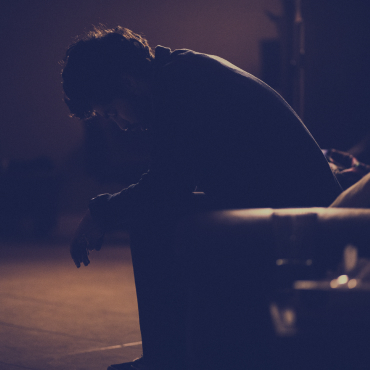
The number of older inmates is increasing due to life expectancy changes and the hardening of prison sentences
However, little research has been generated regarding the health needs of these inmates and what services they require.
Information on their health problems and needs is key so that prison and health services managers can plan to provide a standard of care equivalent to that available in the community. Most prison programmes are developed for younger prisoners and their needs, and seldom older inmates are considered.
Chronic and multiple heart problems, diabetes, hypertension, cancer, Alzheimer’s disease, Parkinson’s disease, among others, are common problems in this population. Their physical mobility and special diet, among other needs should be attended in order to assure their well-being.
Victimization is a serious problem for this group, and prison overcrowding worsens the issue. Elderly inmates suffer not only from the impact of imprisonment, but also from the impact of overcrowding penitentiary systems and lack of resources.
At IPS, we carry out policy and strategies development to address the needs of this group, knowing that adequate care of older inmates requires additional financing and human resources
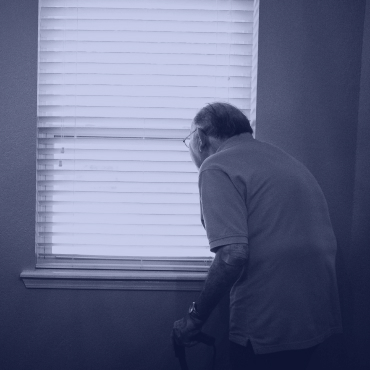
Offenders with physical disabilities comprise a particularly vulnerable group at the various stages of the criminal justice system
Their situation and special needs have not been the focus of much attention. While figures about the number of inmates with disabilities worldwide are scarce, some studies suggest that their numbers are growing due to the increasing prison population in most countries and the significant increase of older inmates.
The various barriers that may hinder their full effective participation in society are magnified in prisons, given the nature of the closed environment, lack of proper inmate differentiation, supervision and care, among others. While behind bars, people with disabilities are often deprived of necessary medical care, as well as needed support, services, and accommodations. They are also easy targets for abuse, violence and discrimination from other inmates and prison staff.
We develop programmes that address the special needs and challenges of prisoners and offenders with disabilities.
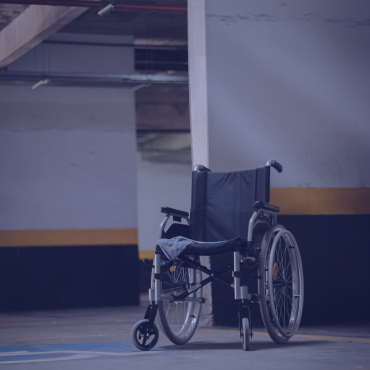
LGBT inmates are an especially vulnerable group and their main and most important need is protection from sexual abuse
Lesbian gay, bisexual and transgender (LGBT) persons are a high vulnerable group in the criminal justice system and in prisons. Relatively little is known about their special needs, although information on the discrimination and abused suffered by this group is increasing.
The main and most important need of LGBT prisoners is protection from sexual abuse and rape, generally perpetrated by other inmates. LGBT offenders are more likely to suffer from STDs, problems associated with drug abuse and other health conditions, since often they will have been forced into a lifestyle that includes risk behaviours, because of prejudices relating to their sexual orientation or gender identity.
The extreme vulnerability of LGBT persons in the criminal justice system calls for the formulation of policies to address the needs of this group and the development and implementation of strategies that ensure that they are not re-victimized in prison or discriminated according to their sexual orientation or gender identity, while facilitating their social reintegration.
Regarding the specificity of the gender issues in the framework of the correctional systems, we offer the following services:
- Policy formulation;
- Application of international human rights instruments;
- Customized strategy development and implementation;
- Mechanisms for the independent monitoring;
- Staff training solutions regarding detection, supervision and procedures on sexual discrimination and abuse matters;
- Special counselling programes for inmates;
- Implementation of complaints and protective segregation procedures;
- Special programmes dedicated to prison rape prevention;
- Special health care solutions.

Prison systems need to develop strategies and programmes that ensure the care of foreign prisoners in an effective and sustainable manner
In many countries, the number of foreign prisoners – that is, inmates who do not carry the passport of the country in which they are imprisoned – is growing at a rapid pace, as a result of globalization, migration, trafficking and transnational crime.
According to Council of Europe, by the end of 2014, there were around 113,000 foreigners in European Union prisons (amongst the total imprisoned population of 620,540).
Foreign nationals are vastly overrepresented in the criminal justice system, due to increasingly punitive measures being adopted against foreign national offenders in many countries, to discrimination, limited awareness of legal rights, lack of access to legal counsel, lack of social networks and low economic status.
Foreign national prisoners are usually cut off from their families and communities, and therefore lack the contact and support to reduce the harmful effects of imprisonment and assist with social reintegration.
Furthermore, foreign national prisoners are more prone to be at risk of intense discrimination, abuse, sexual assault and other forms of violence in the prison setting.
Despite these special needs, in most countries there are no policies and strategies in place to deal with foreign national inmates. Hence, there is a need for states to review their criminal justice policies and law enforcement practices to identify shortcomings and to take steps to improve foreigners’ access to justice throughout the criminal justice process.
Given that imprisonment represents a severe punishment for most foreign national inmates, there is a need to develop effective alternative responses to prison. At the prison management level, there is also a need for prison authorities to develop strategies and programmes that ensure the care of foreign prisoners in an effective and sustainable manner.
Our work, regarding the foreign national target, comprehends the following axes:
- Policy and strategy development;
- Strategic planning to improve prison management and address foreign inmates;
- Specific educational content;
- Staff training (including issues relating to the management of foreign national prisoners, encouraging understanding, methods of response to specific demands and methods of cooperation with other agencies such as immigration authorities, for instance).

Imprisonment often further excludes members of groups already facing discrimination and increases their marginalization
Thus, people from ethnic or racial minorities in conflict with the law require special thought.
In most countries, ethnic, racial minorities and indigenous peoples are significantly overrepresented in the criminal justice system. Incarceration creates a host of collateral consequences, including restricted employment prospects, housing instability, family disruption, and further marginalization, which may lead to a cycle of incarceration, while perpetuating existing racial and ethnic stereotyping.
While behind bars, these groups have special needs based on culture, traditions, religion, language and ethnicity, which prison systems often fail to address. These include linguistic barriers, discrimination (often reflected in various kinds of abuse), break of family and community ties, different religious and spiritual needs, lack of proper rehabilitation programmes, special health care needs and post-release support related to their disadvantaged socio-economic status.
We create and deliver solutions that enhance the response to the needs of minorities in contact with the criminal justice system, acting on:
- Generating and/or reforming legislations, policies, and practices;
- Improving prison management policies and strategies.
- Training courses for criminal justice and corrections staff;
- Creating specific educational and training content for foreign inmates.

Projects
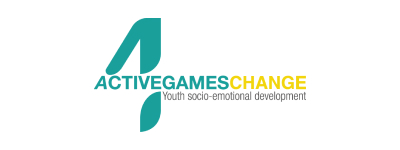
Active Games 4Change
Sport and physical activity learning environment for citizenship, emotional, social and e-competences training
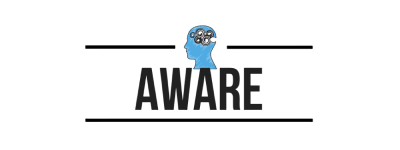
AWARE
Cross-sectoral awareness building on mental health needs in the criminal justice system and on release

EIGEP
European Interaction Guidelines for Education Professionals when working with Children in Juvenile Justice Contexts
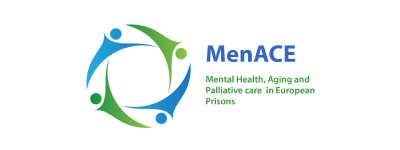
MENACE
Mental health, ageing and palliative care in European prisons

MyComPass
Key Competencies for Minor Offender Reintegration

PREVEX
Preventing Emotional and Sexual Abuse Among Young People

TRAIVR
Training of Refugee Offenders by Virtual Reality

TRIANGLE
Secured digital education system for vocational skills for youngsters in closed institutions